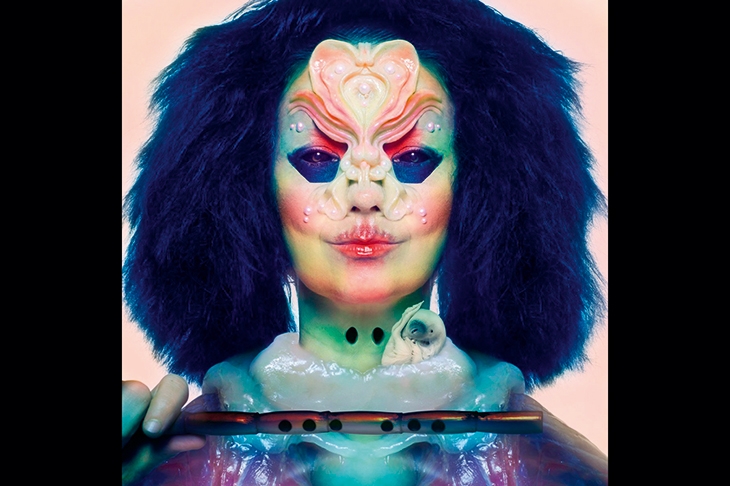Grade: A
A dimbo pop reviewer for one of our national newspapers suggested that on this album, her ninth, Björk was ‘continuing her exploration of structurelessness’. It doesn’t sound wildly enticing, does it? Do go on, etc. It is true that on Utopia there is nothing that has the glorious, simple, pop sheen, and hook, of ‘Venus As A Boy’ from all those years ago. It is true, too, that she looks like a mental on the album cover and cavorts in her videos like a member of the smafolk — dwarfish and ethereal winged creatures from Scandinavian folklore. But then she was never going to act like Bachman-Turner Overdrive, or Kasabian, was she? This is Björk, as she always was.
There is structure here, a lot of it — just not of the kind usually found within what we might call popular music. Amicable time signatures are dispensed with, even on the lovely, indecipherable single ‘Blissing Me’. Nor, you will be surprised to discover, is the verse-chorus-verse-middle-eight formula adhered to terribly strictly at any point. Sometimes you are left simply with Björk’s plangent and yearning but very sparse vocals — and some electronics plus a superfluity of harps or flutes — as on the beautiful ‘Tabula Rasa’. You are always made to wait for the harmonic money shot and indeed sometimes the money shot never actually comes, so to speak, as on ‘The Gate’. But there is always a clear focus: these pieces work, if you are patient, if you have enough time to wait.
Trouble is, who does these days? Still, if you like Schoenberg, you may well appreciate this cleverness. I do.







Comments